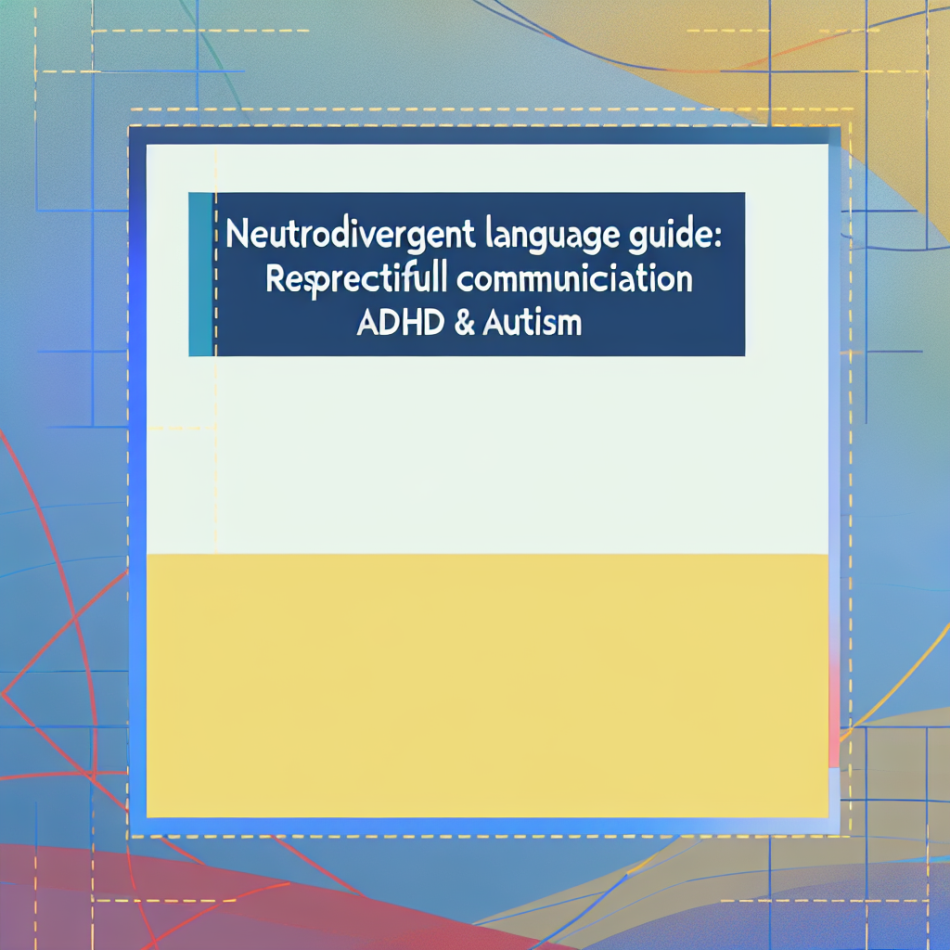The Power of Language in Shaping Neurodivergent Experiences
Describing someone as “brave” for living with ADHD or autism, while often well-intentioned, can feel dismissive or condescending. Such language frames neurodivergence as a burden to overcome rather than a natural aspect of human diversity. This article explores why terms like “brave” miss the mark and offers actionable strategies for using language that respects, empowers, and celebrates neurodivergent individuals authentically.
Why “Brave” Can Feel Patronising
Labelling someone as “brave” for navigating daily life with ADHD or autism risks reducing their identity to a stereotype of struggle. It implies their existence is inherently difficult, which not only oversimplifies their experience but also centres pity over understanding. Neurodivergent individuals often face societal barriers—like inaccessible environments or stigma—not intrinsic flaws. Framing their resilience as “bravery” can unintentionally reinforce the idea that they are outsiders in a neurotypical world.
Understanding Neurodiversity as a Framework
The neurodiversity paradigm reframes conditions like ADHD and autism as natural variations of the human brain, not defects. This perspective shifts the focus from “fixing” individuals to addressing systemic inequities. Language plays a critical role here: words should reflect respect for neurodivergent identities without sensationalising them. For example, instead of labelling traits as “symptoms,” consider terms like “characteristics” or “experiences” to normalise differences.
Principles for Empowering Communication
Adopting empowering language requires intentionality. Below are key principles to guide interactions:
- Avoid assumptions. Ask individuals how they prefer to describe their experiences rather than defaulting to labels like “brave” or “inspirational.”
- Focus on strengths. Highlight talents or skills tied to neurodivergence, such as creativity, hyperfocus, or attention to detail.
- Centire agency. Use phrases like “managing challenges” instead of “suffering from,” which frames the individual as an active participant in their life.
- Context matters. Acknowledge systemic barriers without conflating them with personal tragedy.
Examples of Respectful Language in Practice
Translating these principles into practice can transform interactions. For instance:
- Instead of: “You’re so brave to handle autism every day!”
Try: “I admire how you advocate for your needs in spaces that aren’t always accommodating.” - Instead of: “ADHD must make life so hard,”
Try: “How does your ADHD influence the way you approach problem-solving?”
These shifts prioritise agency, curiosity, and recognition of individual strengths over generic praise that centres struggle.
The Ripple Effect of Mindful Language
Words shape perceptions, both internally and socially. When neurodivergent people hear language that validates their experiences without pity, it fosters self-acceptance and reduces internalised stigma. Conversely, patronising terms can perpetuate harmful stereotypes, such as the trope of the “tragic but inspirational” neurodivergent person. By modelling inclusive language, we challenge societal norms and create spaces where neurodivergence is neither sensationalised nor pathologised.
Moving Beyond Labels to Authentic Connection
True empowerment lies in seeing neurodivergent individuals as whole people, not just diagnoses. Engage with their interests, goals, and challenges without reducing them to their neurotype. For example, instead of focusing on how “brave” they are for attending a social event, acknowledge their effort by saying, “It’s great to see you here—how are you finding the atmosphere?” This approach invites dialogue and respects their autonomy.
Conclusion: Language as a Tool for Inclusion
Describing neurodivergent individuals as “brave” often reflects a lack of nuanced understanding, not malice. By adopting language that prioritises respect, agency, and strength, we move closer to a society where neurodiversity is celebrated, not stigmatised. Small shifts in phrasing—centring individuality over assumptions—can profoundly impact how neurodivergent people perceive themselves and are perceived by others. Ultimately, empowering communication isn’t about avoiding mistakes; it’s about committing to learn and grow alongside neurodivergent communities.
